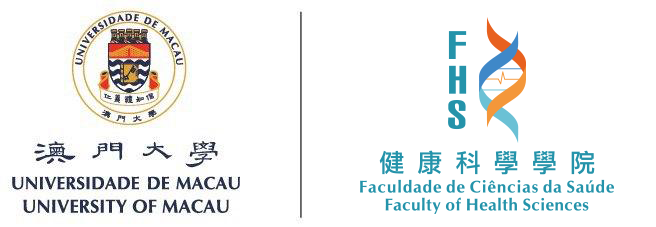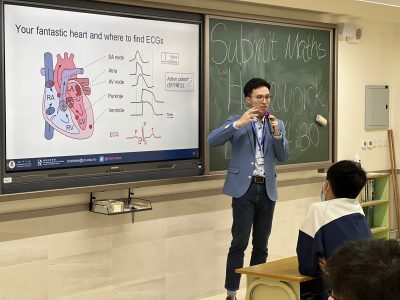Assistant Professor Wakam CHANG and UM Macao Fellow Chon Lok LEI in the University of Macau (UM) Faculty of Health Sciences (FHS) delivered two science talks to enhance local secondary students’ interest in science, biology, and biomedical sciences. The former gave a talk titled ‘The Beauty of Cells’ at Escola Xin Hua, and the latter gave a talk titled ‘Modelling Life: The Mathematics of Our Beating Heart’ at Instituto Salesiano.
Prof. Chang showed the students a series of cell images and pointed out that advances in novel imaging techniques enable humans to observe cells in detail. He then explained the role of organelles, the mechanism of how cells function as the basic unit of living organisms, and why studying cell motility would be beneficial for further studies on cells.
Dr. Lei began his talk by asking students a question, and told the students that the very first electrocardiogram (ECG) was performed on a bulldog. He said that the heart acts as a mechanical pump for the human body, pumping oxygen, carbon dioxide and other nutrients to the whole body through blood circulation, adding that the heart has more than five billion muscle cells that coordinate the sequence of contraction through electrical signals. He then explained the mechanism of observing the health of a patient’s heart by using an ECG to measure cardiac action potentials.
During the science talks, the students all showed great interest and raised questions related to biomedical sciences and the academic programmes offered by the FHS. The two speakers answered the students’ questions in a lively and interesting way and shared the relevant knowledge with real-life examples.
UM FHS has been organising science talks for many years, with the aim of sharing knowledge of science, biology, and biomedical sciences with secondary students in a lucid manner, thereby enhancing their interest in the related fields as well as their passion for science.



